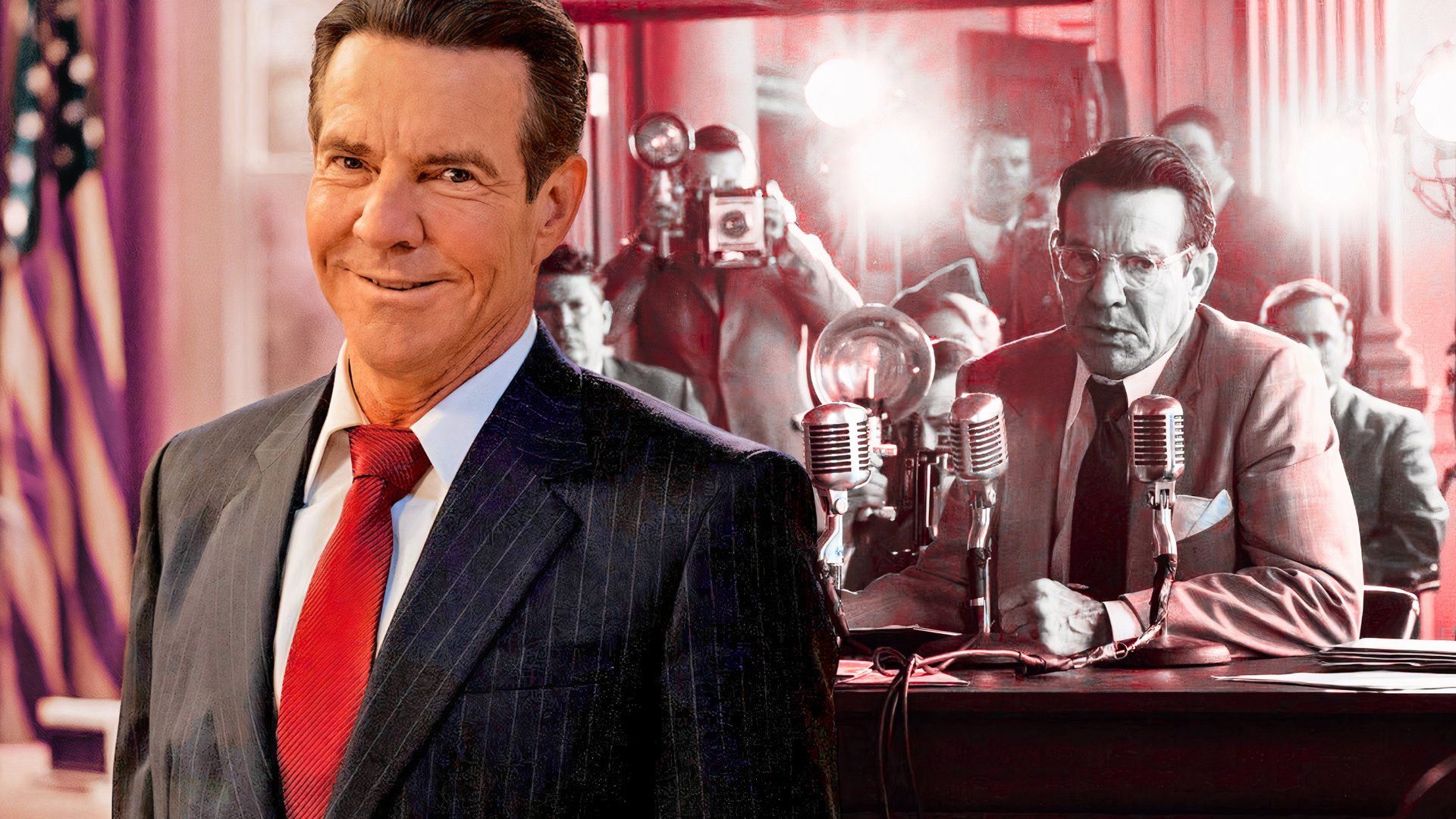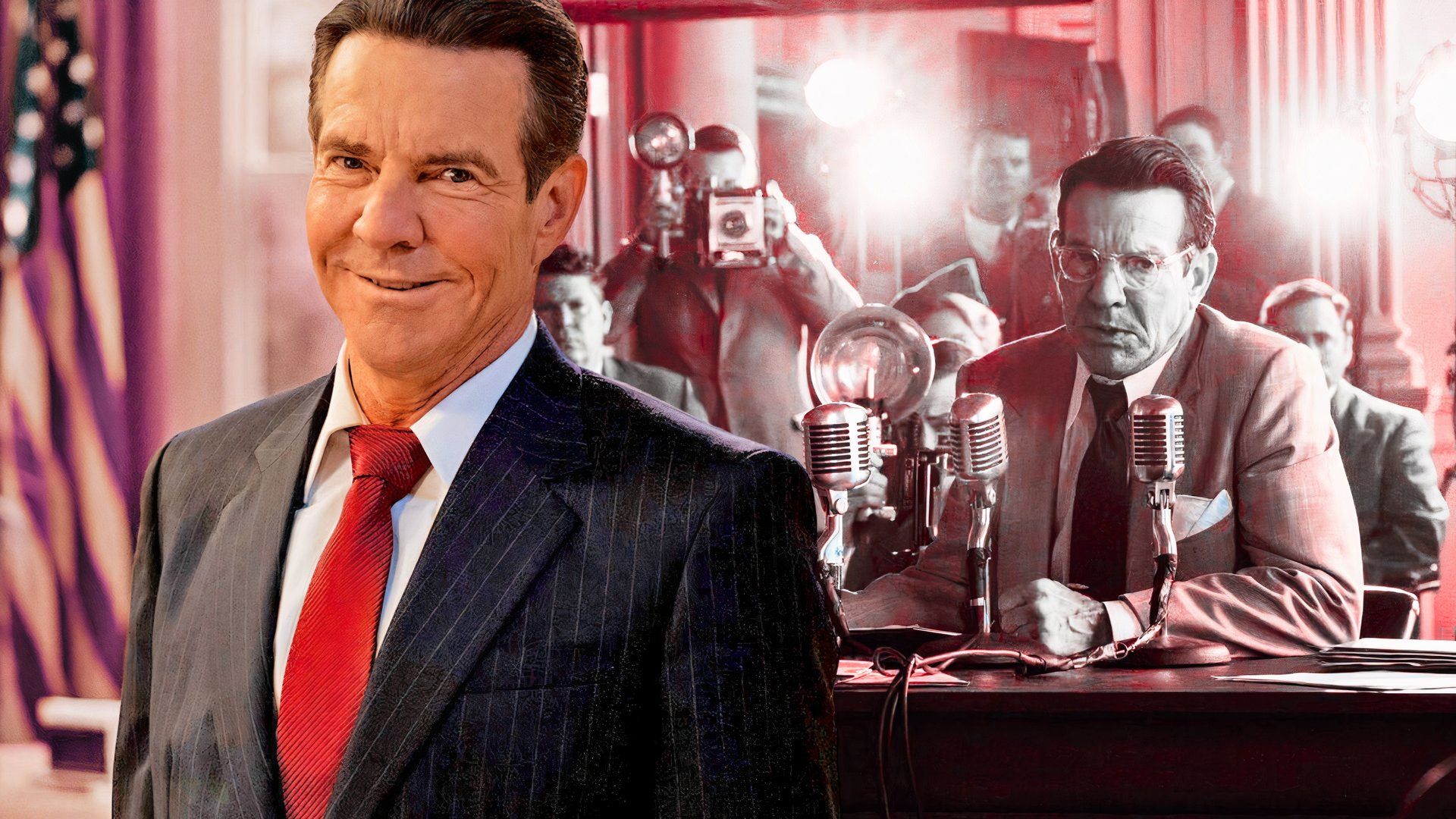
Reagan, the latest biopic about President Ronald Reagan, offers an expansive look at the former Commander in Chief. Dennis Quaid plays the titular character alongside Penelope Ann Miller as First Lady Nancy Reagan. With a cast comprised of everyone from veteran actor John Voight to former Creed frontman Scott Stapp, Reagan delves into Reagan’s childhood, traverses his career as an actor, and provides a comprehensive look at his political career.
Based on Paul Kengor’s book The Crusader: Ronald Reagan and the Fall of Communism, Reagan begins with the assassination attempt on President Reagan’s life in 1981 and then delves into the multifaceted man. As much as Reagan covers, many details are left out of the movie. Reagan’s presidency was full of ups and downs, contributing to his complicated legacy and overall reputation.
None of the less-than-favorable details about Reagan’s life and career are included in Reagan. The book that the movie is based on focuses on Communism during Reagan’s life, but it’s impossible to separate that from everything about Reagan. This is especially true for his failure to respond to the so-called “War on Drugs” and Iran-Contra. Still, the suggestion that Reagan single-handedly ended the Cold War is the most egregious error.
No Mention of the War on Drugs
Told from the perspective of a fictionalized Soviet KGB agent, Viktor Petrov (played by John Voight),Reagan spends much of the movie focusing on Ronald Reagan’s role in the Cold War. As a result, some of the domestic aspects of his presidency are lost, notably the so-called “War on Drugs.” There’s no actual mention of the efforts Reagan and his administration undertook to combat drug abuse and the illegal drug trade during the 1980s.
Perhaps more identifiable with First Lady Nancy Reagan’s “Just Say No” campaign, efforts to quell drug use in the United States during the Reagan presidency resulted in mass incarceration and limited success in terms of actual deterrence. The Anti-Drug Abuse Act of 1986 implemented minimum sentences for drug-related offenses and increased existing punishments for drug possession.
In a speech to the nation on September 14, 1986, Reagan explained his overall goal,
[To] toughen our laws against drug criminals, encourage more research and treatment, and ensure that illegal drugs will not be tolerated in our schools or in our workplaces… Let us not forget that in America people solve problems and no national crusade has ever succeeded without human investment. Winning the crusade against drugs will not be achieved by just throwing money at the problem.
Funding for law enforcement agencies was substantially increased, however, and he pledged $3 billion to fight drugs. Once the policies were underway, the delineation between “crack” (cheaper to make and used in lower-class areas) and “cocaine” (more expensive and associated with the upper classes) was made clear.
Reagan’s Role and Response to Iran Contra in ‘Reagan’ Are Frighteningly Brief
With few problematic events included in Reagan, the short part of the movie dedicated to the Iran-Contra Affair is somewhat refreshing. It is quite brief and does not accurately reflect the extent to which the entire scandal — an incredibly complicated matter — characterized Reagan’s presidency.
When Reagan is shown dealing with Iran-Contra, he acts as though anyone looking into the matter — much less trying to hold someone accountable — is defiant and openly antagonistic to him and his administration. In reality, the individuals searching for the truth about Iran-Contra unearthing a secret US arms deal that sent money from weapons purchased by Iran to support the anti-Communist Contras in Nicaragua.
The Iran-Contra Affair nearly brought down the Reagan presidency. Despite the Commander in Chief’s lack of transparency to the American people about it, the Commander in Chief was never implicated in any crimes after an eight-year investigation was complete. For such a long, web-like scandal, it is woefully neglected.
Reagan Isn’t Responsible for the Berlin Wall Coming Down
On June 12, 1987, President Ronald Reagan stood at the Brandenburg Gate in Berlin, Germany, and said,
General Secretary Gorbachev, if you seek peace, if you seek prosperity for the Soviet Union and Eastern Europe, if you seek liberalization, come here to this gate.
Mr. Gorbachev, open this gate!
Mr. Gorbachev, tear down this wall!
The Berlin Wall did come down two and a half years later, with the Soviet Union dissolving soon after. The collapse of the Wall and the Soviet Union had little to do with Reagan and his call to the Soviet leader. It had already been underway for years. When Gorbachev took power of the Soviet Union in 1985, the economy was in shambles and the political system was rapidly deteriorating. He introduced two reform policies, glasnost and perestroika.
Glasnost emphasized openness in the Soviet Union as well as in how the USSR interacted with other world powers. Less repression and censorship accompanied efforts to open Soviet elections to non-Communist residents. Perestroika was a plan to restructure the economy with the slow introduction of capitalist practices and policies.
Both policies failed to save the Soviet Union but did create a situation that made independence movements within the USSR possible. Poland, Romania, and Bulgaria were among the many countries where revolutions ushered in democracy while Eastern and Western Germany paved the way to reunification. The Berlin Wall came down in November 1989, by which time Reagan was out of office and George H. W. Bush was president.
The Chernobyl nuclear disaster in 1986, internal political strife, and the failed effort of the Soviets in Afghanistan all further compounded the challenges faced by the USSR. By the end of 1991, Gorbachev resigned and the Soviet Union ceased to exist. While much of this took place on Reagan’s watch, the President wasn’t the man who made it happen.
